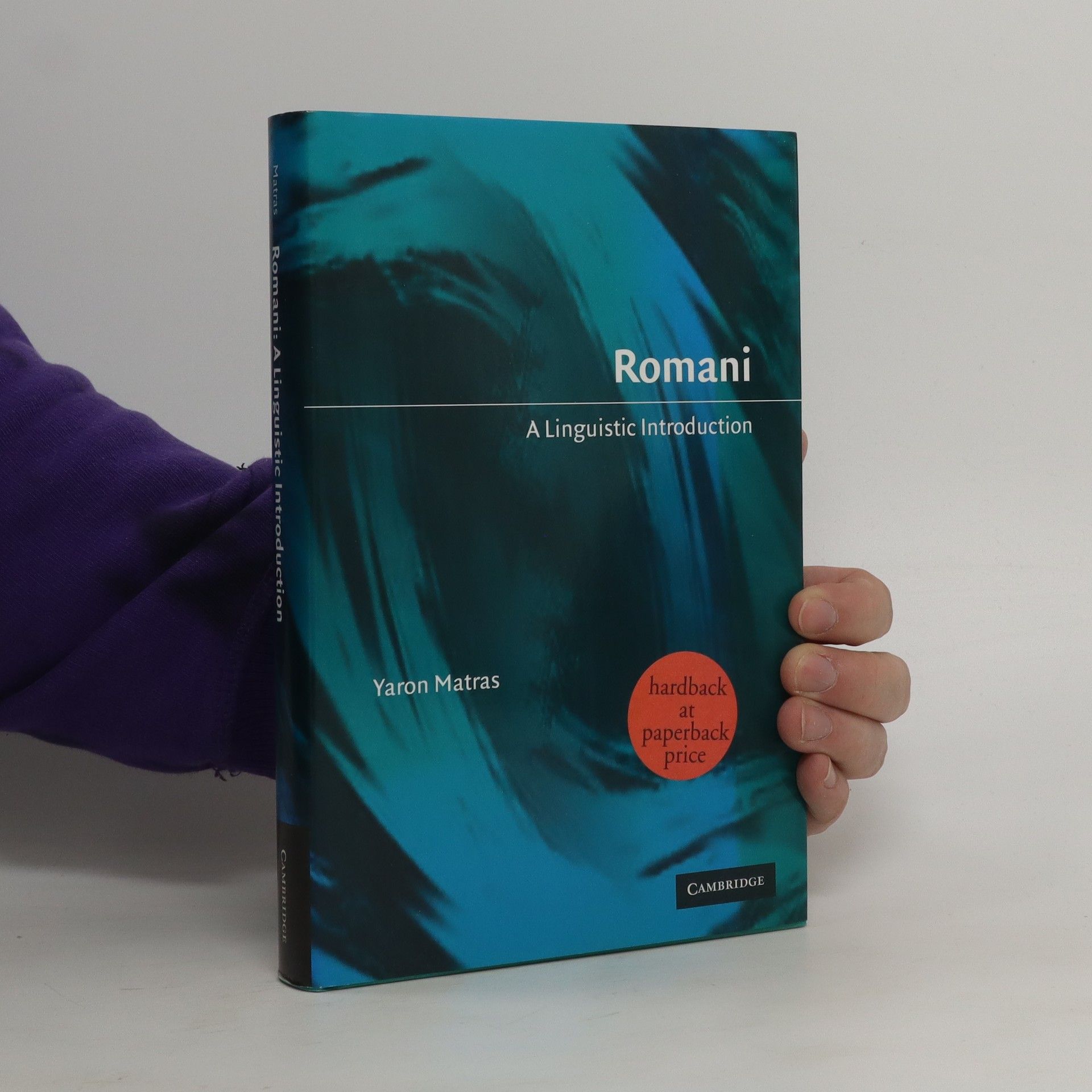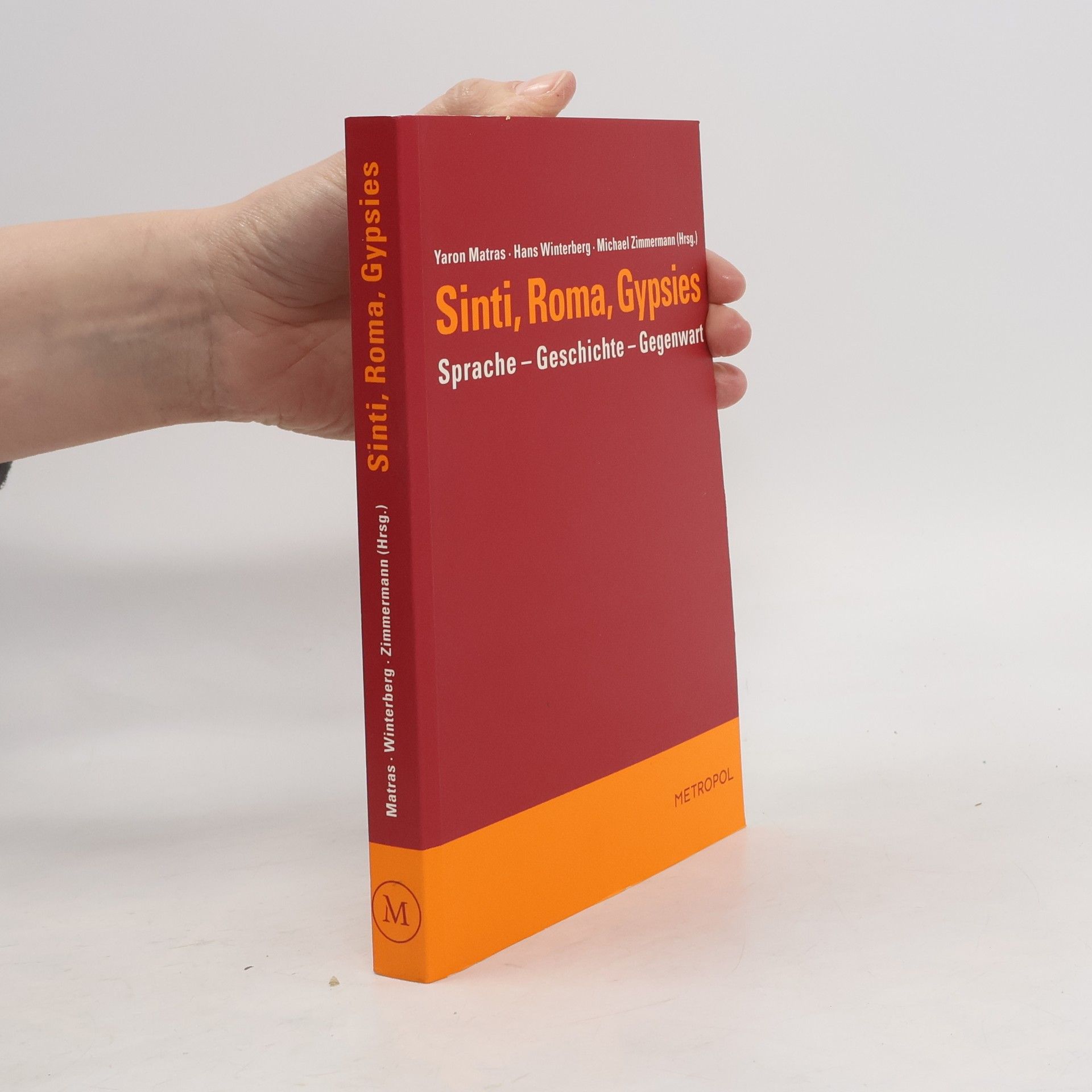Yaron Matras Bücher
Yaron Matras ist ein herausragender Linguist, dessen Werk tief in die romanische Sprache und Kultur eintaucht. Aufbauend auf einer Grundlage im Aktivismus und im Kampf für Bürgerrechte umfasst seine akademische Karriere bedeutende redaktionelle Rollen, wie die für Romani Studies. Matras hat umfangreiche Forschungsprojekte zu romanischen Migrationen und Sprachen geleitet und zahlreiche Publikationen verfasst, die seine lebenslange Hingabe unterstreichen. Seine fließende Beherrschung der romanischen Sprache ermöglicht es ihm, die Feinheiten ihres Ausdrucks mit bemerkenswertem Einblick und Tiefe zu erfassen.





Romani. A linguistic introduction.
- 305 Seiten
- 11 Lesestunden
Romani is a language of Indo-Aryan origin which is spoken in Europe by the people known as "Gypsies"--who usually refer to themselves as Rom. There are more than 3.5 million speakers, and their language has attracted increasing interest from scholars as well as language planners in governments and other organizations during the past ten years. This book is the first comprehensive overview in English of Romani, its structure, history, typology and dialects. It will provide an indispensable reference work for all interested in this fascinating language.
I Met Lucky People (The Story of the Romani Gypsies)
- 275 Seiten
- 10 Lesestunden
Their origins myths place them at the Crucifixion, homeless and fated to wander, with divine permission to steal for survival. In the Middle Ages, they were thought to have emerged from Egypt, yet their language contains Greek elements and traces back to India. The Romani people, one of the last societies in the Western hemisphere with a strictly oral culture, lack a written history. Since the early 1990s, linguist Yaron Matras has engaged with the 'Rom', traveling across central and eastern Europe to study their language and dialects while observing their quest for recognition. In this comprehensive account, Matras explores their culture, language, and history, revealing a rich past reflected in their customs and the impact of Europe’s changing fortunes on their identity. The Romani are unique: without territory, national sovereignty, or formal institutions, and lacking a tradition of land ownership. As the surrounding global society seeks to define itself, the future of the Roms remains uncertain. Unlike other marginalized groups that have gained some inclusion, they continue to struggle for their voice. To ensure their future, it is essential to modernize our understanding of them and move beyond outdated perceptions.
Exploring the role of cities in fostering belonging through linguistic pluralism, this book utilizes real-world case studies to highlight the importance of cultural diversity. It examines how academics can contribute to these processes while addressing the challenges they encounter. Essential for those invested in safeguarding linguistic and cultural pluralism, the work emphasizes the significance of inclusivity in urban environments.
Language Contact
- 426 Seiten
- 15 Lesestunden
This revised edition serves as a foundational introduction to the study of language contact, offering insights into its key concepts and recent advancements. It explores the dynamics between languages in contact, addressing the implications for linguistics, culture, and communication. The book is essential for anyone interested in understanding how languages influence each other and evolve in diverse contexts.